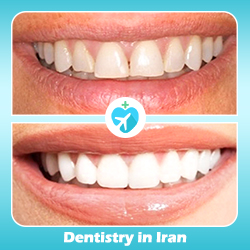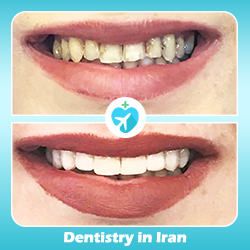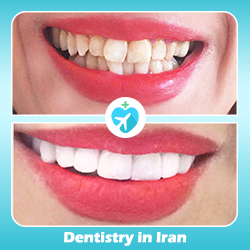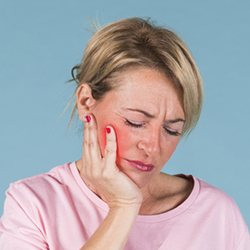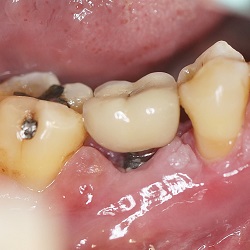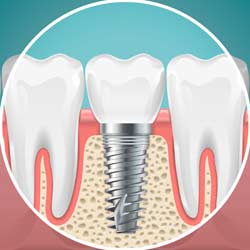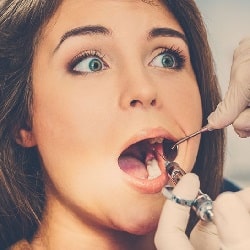Whether you’re about to schedule your dental implants surgery or you’ve recently had the procedure, knowing how to take care of yourself is essential for a smooth and uncomplicated recovery. One of the most common concerns during this period is nutrition and understanding the proper dental implant recovery diet.
Questions about post-op care often focus on what to eat after tooth implant surgery. Although dental implants are designed to function like natural teeth, it takes time for them to fuse with the jawbone and become stable enough to support a dental crown. Until the implant is fully integrated and ready for crown placement, following a structured dental implant diet timeline is essential to protect the implant and promote proper healing.
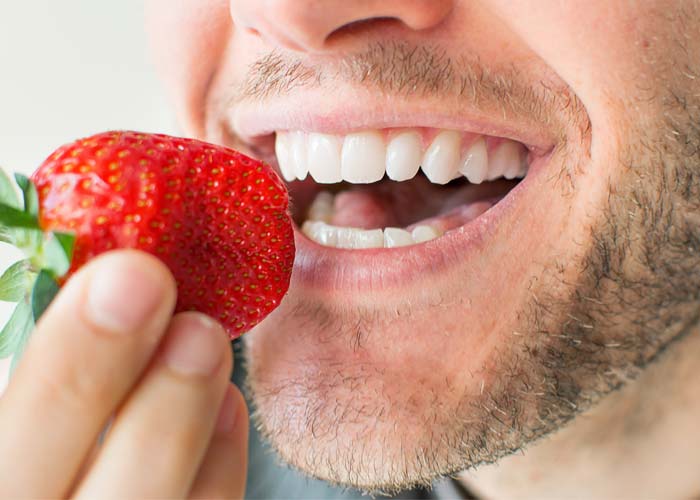
Just like any other surgery, it takes some time for a dental implant patient to recover from the procedure and get back to normal life. During this time, patients must follow post-op guidelines to have a successful experience with no complication. Here is a guide to eating after dental implants surgery.
Dietary tips for dental implants recovery
First and foremost, keep in mind that your body needs nutrition to recover properly. So do not skip meals and eat nutritious foods to have a faster recovery and healing. If you are on a special diet for a medical condition, like diabetes, just keep following it and ask your dentist to give you instructions based on your current diet.
One hour after your surgery, start with a liquid diet (soup, milk, ice cream, etc.). Consult with your doctor about what you want to eat. Some ingredients used in soups and other liquid foods are acidic and can cause irritation and a burning sensation. Avoid hot foods and drinks for the first 24 hours after surgery. Also, avoid using a straw for drinking for one day.
For the first week after surgery, you should avoid tough foods than put pressure on your gum while chewing. Use soft and pureed foods, such as puddings, soups, mashed potato, yogurt, cheese, milkshakes, oatmeal, and boiled eggs.
Dairy products are great options for you because they are rich in calcium and protein, which are necessary for strengthening the jawbones, thus making it faster for the implants to get secured in place.
In the second week after your dental implants surgery, go on with the soft diet because your gums are still sensitive and should be treated gently. If you want to add meat to your diet, consider minced meat and soft fish that doesn’t require much chewing. After two weeks, your gums will partially heal and you will be able to resume normal eating habits to some extent, but you’d better be more cautious not to put pressure on your gums by eating tough and crunchy foods. Try to confine your meat consumption to the minced form, because chewing meat that is not minced and well-cooked is hard to chew, which puts pressure on the gums.
Fruits and vegetable are very important for your health and healing, but choose those that are easy to eat with minimal chewing. Too sour and acidic fruits should not be eaten because they cause pain in the surgical area.
Foods to avoid after dental implants
Certain foods should be refrained from during the recovery period of a dental implant procedure. Be sure to ask your doctor what are the eating no-nos after surgery. Some of the foods you should avoid are as follows:
- Acidic foods, such as tomato, tomato sauce, and orange juice: The acidity of these foods can cause burning pain in your gums.
- Popcorn, nuts, sunflower seeds, etc.: These foods often have hulls that get lodged between teeth and cause pain and inflammation.
- Cracked pepper: It gets lodged between teeth and implants, causing pain and inflammation.
- Spicy foods: Spicy foods cause pain and discomfort
- Crunchy and difficult to chew foods
- Toast: Since toast is not a soft type of bread, it isn’t a good option after dental implant surgery.
- Rice: rice also can get stuck in the mouth, so it’s better to replace it with softer types of bread.
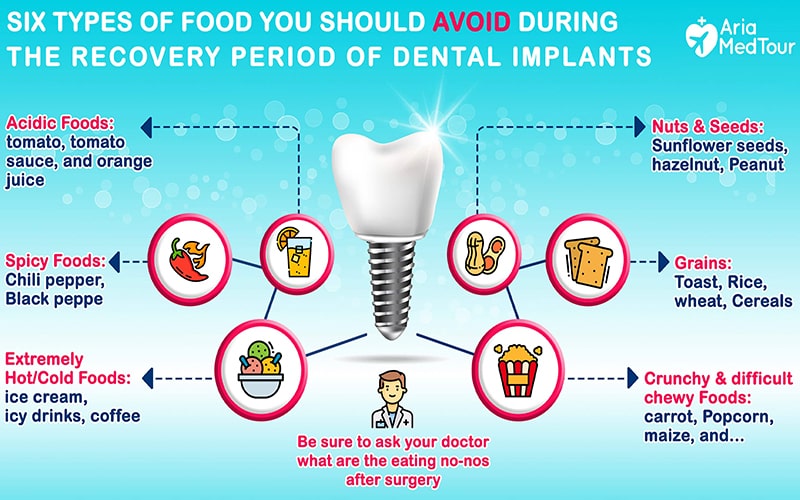
List of foods you should not eat after getting teeth implants
Putting aside foods, you also need to stop smoking one week before dental implants until 2 weeks after surgery, because smoking hinders the healing process. Also, some over-the-counter mouthwashes such as Listerine and Scope can interfere with healing and should not be used. Instead, use a safer mouth rinse such as Chlorhexidine Gluconate (Peridex), which are usually prescribed by dentists following a dental implants procedure.

